Robert Webster
-

Chancellor appoints advisory group to advance innovation ecosystem
The group will build upon existing work to leverage Vanderbilt-driven research and innovation to support local community needs, attract entrepreneurial talent and venture investment, and expand our city and region’s innovation capacity. They also will examine infrastructure needs, including dedicated physical space, programs for collaboration and how to foster a culture of innovation. Read MoreJun 4, 2024
-

Vanderbilt leads $12M effort to accelerate real-world impact of biomedical innovations through education, mentorship and funding for aspiring entrepreneurs
Robert Webster and Charleson Bell will lead regional Research Evaluation and Commercialization Hub to propel inclusive innovation and catalyze a medical innovation economy. Read MoreOct 6, 2023
-

Discovery Vanderbilt invests in three faculty-initiated startups: HeroWear, IDBiologics and Virtuoso
Seed and Series A funding to three startups—HeroWear, IDBiologics and Virtuoso—rooted in research conducted at Vanderbilt University and Vanderbilt University Medical Center underscore a university-wide commitment to enhanced support for Vanderbilt’s most innovative faculty, students and alumni. Read MoreMay 23, 2023
-

Vanderbilt professor to use portion of $2.3 million grant on robot technology to help patients avoid invasive colectomies
Robert Webster, Richard A. Schroeder Professor of Mechanical Engineering and associate professor of medicine and urology at Vanderbilt University, is part of a collaborative team that has received a more than $2.3 million grant to further develop technology that seeks to prevent patients from having invasive colectomies by using steerable robot-like instruments. Under his second startup... Read MoreAug 25, 2022
-

And the Beat Goes On: A resilient Vanderbilt community finds innovative ways to thrive amid the challenges of COVID-19
As the COVID-19 pandemic continues to upend lives in countless ways, members of the Vanderbilt community have shown remarkable resilience in the face of the crisis. Read MoreMay 14, 2020
-
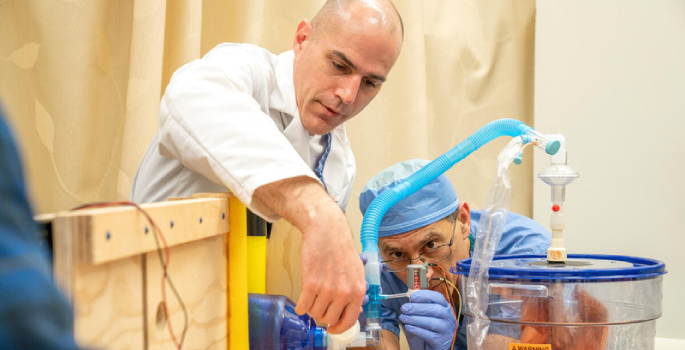
VU engineers and VUMC doctors team up for open-source ventilator design
As COVID-19 continues to push unprecedented challenges on medical communities, one of the most pressing threats for hospital staff across the country is a dwindling supply of ventilators. Now, an interdisciplinary team of Vanderbilt University and Vanderbilt University Medical Center faculty is taking on the challenge by way of a fabricated, open-source ventilator design. Read MoreMar 27, 2020
-

New VURC Subcommittee for International Research and Engagement formed
Faculty have been named to a new subcommittee formed by the Vanderbilt University Research Council to provide governance for the GlobalVU initiative. Read MoreNov 18, 2019
-
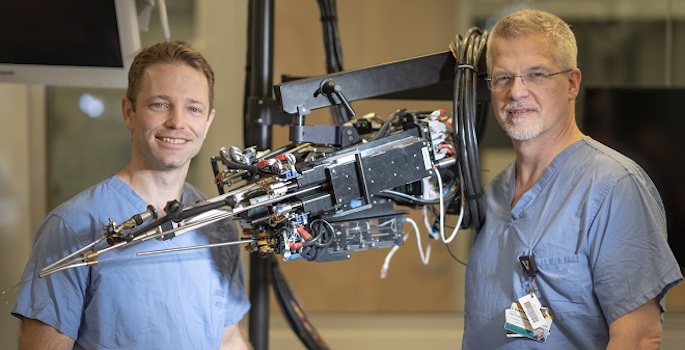
Hand-held robot points to less invasive prostate surgery
Vanderbilt collaborators focused on minimally invasive prostate surgery are developing an endoscopic robotic system with two-handed dexterity at a much smaller scale than existing options. Read MoreJul 18, 2019
-

Hand-held robot points to less invasive prostate surgery
Vanderbilt collaborators focused on minimally invasive prostate surgery are developing an endoscopic robotic system with two-handed dexterity at a much smaller scale than existing options. A key part of the design – telescoping, curved, concentric tubes – received U.S. patent protection in March 2019, the same month the principal investigators secured a $2.1 million R01... Read MoreJul 18, 2019
-
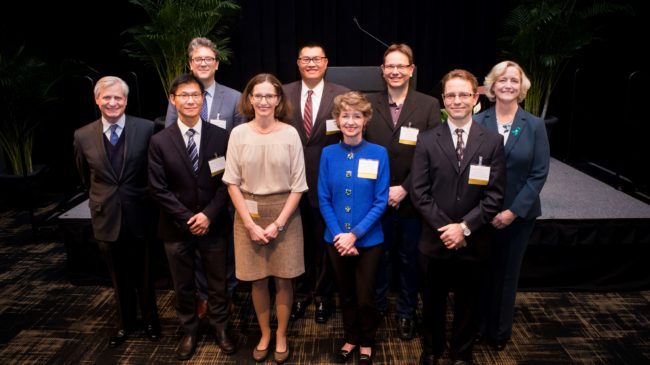
Endowed chair holder celebration honors eight faculty members
Vanderbilt’s newest endowed chair holders were celebrated for their path-breaking scholarship and research by family members, donors, colleagues and friends during a Feb. 25 ceremony. Read MoreFeb 28, 2019
-
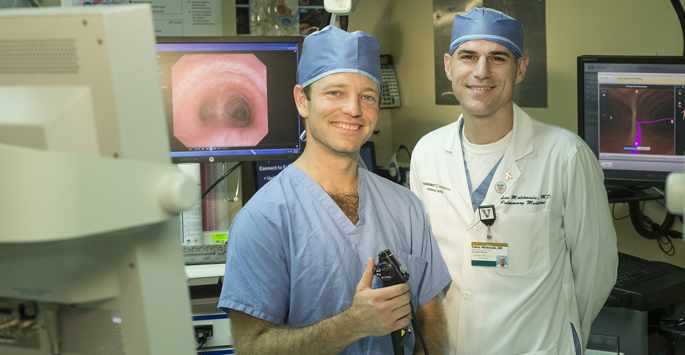
Team to develop steerable robotic needle for biopsies
Collaboration between a mechanical engineer at Vanderbilt University and a pulmonologist at Vanderbilt University Medical Center (VUMC) has resulted in a National Institutes of Health (NIH) R01 grant that will be used to develop a steerable robotic needle to safely biopsy hard-to-reach lung nodules. Read MoreOct 26, 2017
-
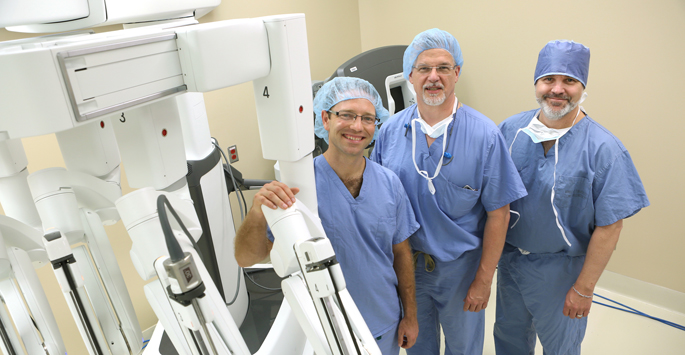
Team developing imaging upgrade for robotic surgery
Removing part of a kidney with minimally invasive robotic surgery rather than an entire kidney when operating for smaller tumors is often best for patients from a recovery and health standpoint, but many surgeons hesitate to do so because of the complexity of the robotic partial nephrectomy procedure. Read MoreOct 12, 2017
-
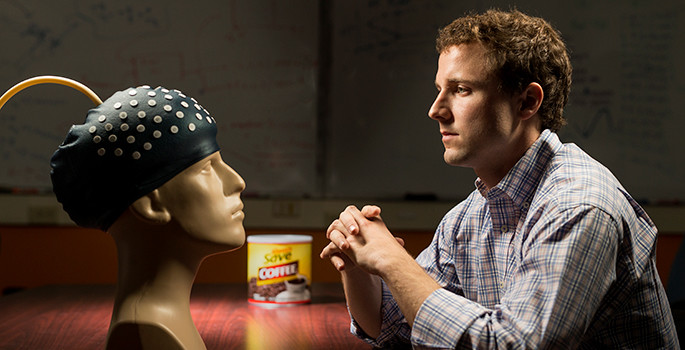
How six cups of ground coffee can improve nose, throat surgery
Vanderbilt engineers have designed a “granular jamming cap” filled with coffee grounds that can improve the accuracy of the sophisticated “GPS” system that surgeons use for nose and throat surgery. Read MoreJun 20, 2017
-
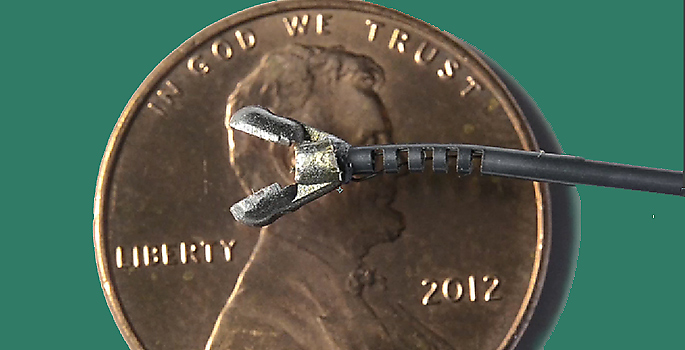
Tiny mechanical wrist gives new dexterity to needlescopic surgery
VIDEO» A Vanderbilt research team has successfully created a mechanical wrist less than 1/16th of an inch thick -- small enough to use in needlescopic surgery, the smallest form of minimally invasive surgery. Read MoreJul 23, 2015
-
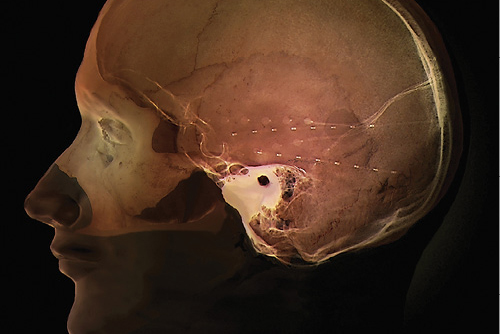
Brain Surgery through the Cheek
For those most severely affected, epilepsy treatment means drilling through the skull deep into the brain to destroy the small area where seizures originate—invasive, dangerous, and requiring a long recovery period. Five years ago a team of Vanderbilt engineers wondered: Is it possible to address epileptic seizures in a less invasive way? Read MoreDec 23, 2014
-
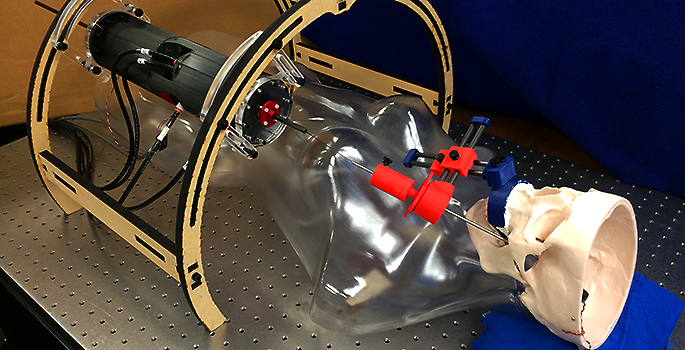
Brain surgery through the cheek
Vanderbilt engineers have developed a surgical robot designed to perform brain surgery by entering through the cheek instead of the skull. Read MoreOct 15, 2014
-
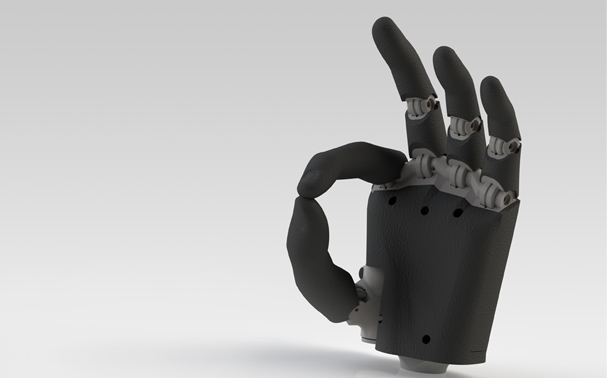
Vanderbilt Medicine: Robotics revolution
In the foreseeable future, robots will be sticking steerable needles in your brain to remove blood clots; capsule robots will be crawling up your colon as a painless replacement for the colonoscopy; and ultra-miniaturized snake robots will remove tumors from your bladder and other body cavities. Read MoreSep 11, 2013
-
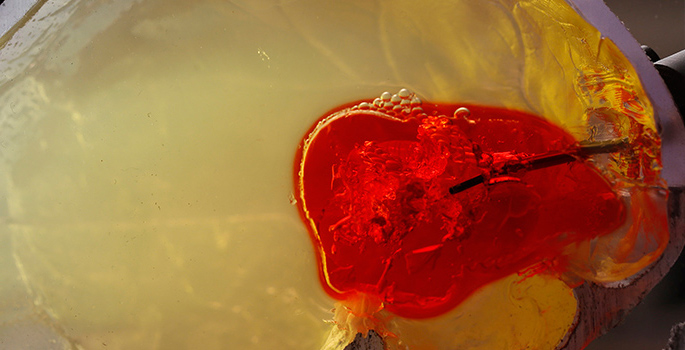
Robot uses steerable needles to treat brain clots
Surgery to relieve the damaging pressure caused by hemorrhaging in the brain is a perfect job for a robot. That is the basic premise of a new image-guided surgical system under development at Vanderbilt University. Read MoreAug 8, 2013
-

Innovation Helps Teach Math to Visually Impaired Students
A new Android app developed at Vanderbilt uses tactile feedback technology to help students with visual impairments to master algebra, geometry, graphing and other subjects that are particularly hard to comprehend without the aid of normal vision. Read MoreJan 13, 2013
-
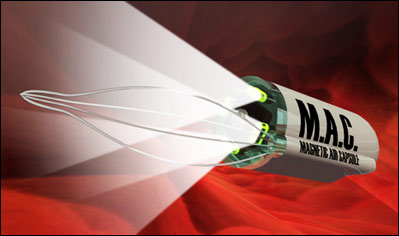
NSF grant accelerates development of medical capsule robots
Four Vanderbilt School of Engineering faculty members have been awarded a $1 million grant from the National Science Foundation to create new tools, including a web-based modeling and simulation infrastructure, intended to help speed up the development of miniature medical capsule robots. Read MoreDec 6, 2012